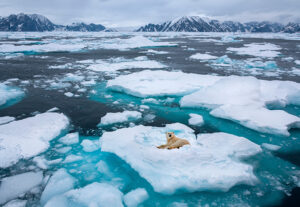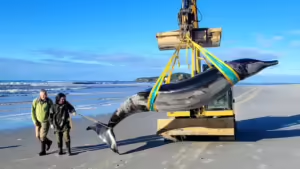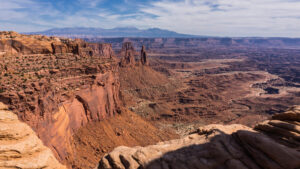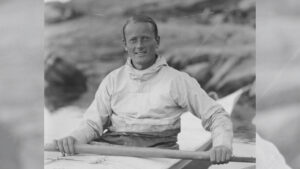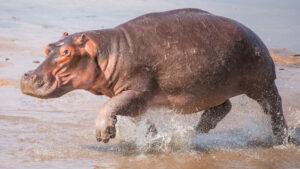Just two years shy of his 80th birthday, Will Steger is embarking on yet another arctic adventure.
The accomplished polar traveler arrived in Canada’s Northwest Territories on Monday, April 17, with plans to attempt another solo trip through northwestern Canada. The remote poles of the planet have defined Steger’s career for a half-century, and the septuagenarian clearly has no intention of slowing down.
Steger laid out his latest itinerary on the website for the Steger Center, a near-completed project focused on environmental awareness and leadership.
He intends to travel about 1,300km along rivers “that will be either frozen, breaking up or flowing,” Steger wrote.
Unlike recent expeditions, Steger isn’t using a canoe. Instead, he’s trying out a “new light system of travel” that involves three two-meter sleds hauling a cumulative 109kg of supplies. That includes 60 days’ worth of food and fuel, minimal lightweight gear and clothing, and an inflatable 10-pound Alpacka raft, Steger said.
“The first 300 miles I will be on skis, hauling my sleds over the rugged Coppermine-Great Bear Divide to Dease Bay on the northeast side of Great Bear Lake (one of the largest freshwater lakes in the world),” Steger wrote. “From there, I will sled along the lake’s north coast and then ascend the Blood and Haldane Rivers to the headwaters of the Horton River. The crux of this route will be making it to this headwaters before breakup. I may have to wait out breakup there and then descend the Horton 400 miles by raft. Near the Arctic Ocean I will hike overland 100-plus miles to get to the Inuit village of Paulatuk, arriving mid to late June.”
Watching the Arctic change
On Monday, Steger arrived in Yellowknife, the small capital of Canada’s Northwest Territories.
Tomorrow, his friend and bush pilot Dave Olesen will drop him off on the Arctic Circle about 16km west of the Coppermine River, on Kamut Lake. From there, Steger will begin what he calls “an incredible adventure with lots of unknowns.”
Speaking through the first of many planned audio updates on Soundcloud, Steger said, “the weather looks really good.”
“The colder the weather for me, the better,” he said. “I probably should have started the expedition two weeks earlier to catch the colder weather before the breakup but that wasn’t an option. I had too much to do in the city with the Steger Center.”

Using a packraft, Steger will avoid hauling a canoe through snow, as happened during his expedition last year. Photo: Screenshot
If Steger can travel the entire planned distance over two months, he will experience the Arctic’s yearly change from spring to summer.
“I will arrive when the first bears are coming out of hibernation and I will be there to greet the migrating waterfowl,” he wrote. “As season breakup progresses, I will experience the nesting, birthing and blooming of the Arctic landscape and its creatures. Later I will witness the young taking flying lessons from their parents and the flowers seeding.”
For Steger, it’s pretty clear that the journey is more important than reaching the destination.
“I am looking forward to the Zen simplicity and rhythms that will free my mind, allowing me to see the wilderness for what it is — one amazing creation,” he wrote.

